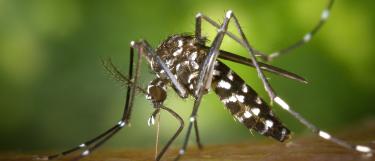
Understanding the entangled mobilities of Aedes mosquitoes and humans
HCE Member Dr. Carsten Wergin from the Faculty of Behavioural and Cultural Studies, Heidelberg Centre for Transcultural Studies (HCTS) is part of a Volkswagen Stiftung funded consortium focused on understanding the entangled mobilities of Aedes mosquitoes and humans.
Together with other researchers from the Freie Universität Berlin, Ifakara Health Research and Development Centre (IHRDC), Universidad Nacional Autónoma de Mexico, and the Indian Council of Medical Research, the researchers aim to understand how these mobile mosquitoes affect humans in India, Mexico, Tanzania and Germany.
The invasive mosquito species Aedes, vector for a variety of arboviral diseases, is taken as a paradigmatic case of how human and nonhuman mobility converge in contemporary societies. The team will monitor the presence and abundance of Aedes mosquitoes in and through human transport.
This will shed light on the socioecological dynamics that stem from these entangled mobilities, answering the question what role infrastructures play in the transmission of infectious diseases. Understanding human-mediated dispersal empirically will increase the predictive power of models by taking into account how the lived geographies of Aedes and humans intersect.
Based on the results of the pilot phase, the project aims at producing scientific evidence for understanding risk exposure, mitigating adverse events and developing mobility-related measures in response to Aedes and its associated global health challenges. The project is designed as a cross-disciplinary study with sampling methods from entomology and molecular biology (a.o. ELISA, sequencing for population genomics and eDNA analyses) as well as social sciences (semi-structured interviews, participant observation, ethnographic method ?goalong"). It will facilitate pro-active community engagement by involving citizens and decisionmakers along the research and developing living maps for documentation. As a result, overlaying mobility maps will provide a transnational cartography of entangled human and mosquito mobility in Tanzania, India, Mexico and Germany.
Contact
PD Dr. Carsten Wergin
Associate Professor of Anthropology
Faculty of Behavioural and Cultural Studies
phone: +49 6221 544306
Email: wergin@uni-heidelberg.de
